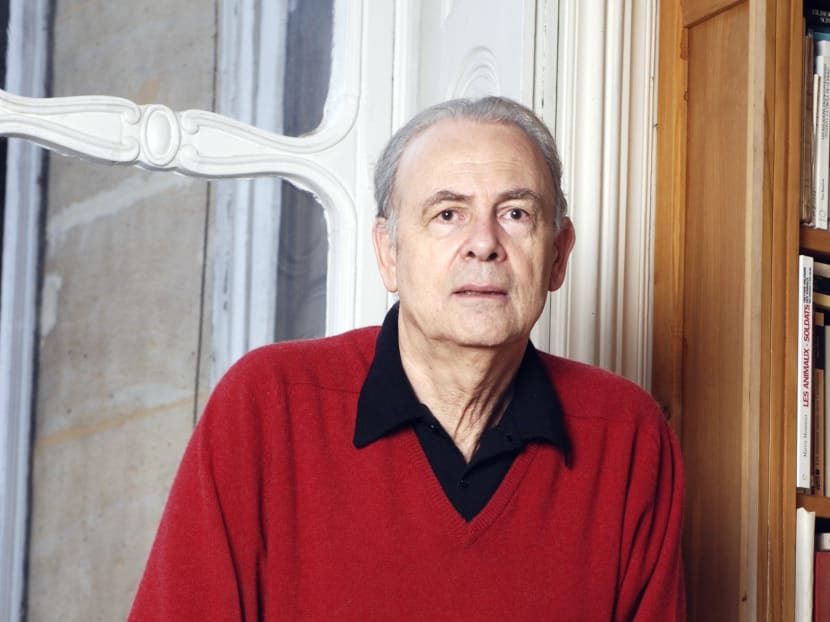French writer Modiano wins literature Nobel
STOCKHOLM — Mr Patrick Modiano, the French writer whose novels centre on topics such as memory, identity and guilt, won the 2014 Nobel Prize in Literature yesterday. In an announcement in Stockholm, the Swedish Academy cited Mr Modiano’s ability to evoke “the most ungraspable human destinies in his work”.

Many of Mr Patrick Modiano’s works delve into the moral dilemmas citizens faced during World War II. Photo: REUTERS
STOCKHOLM — Mr Patrick Modiano, the French writer whose novels centre on topics such as memory, identity and guilt, won the 2014 Nobel Prize in Literature yesterday. In an announcement in Stockholm, the Swedish Academy cited Mr Modiano’s ability to evoke “the most ungraspable human destinies in his work”.
Mr Modiano was born in July 1945 in a west Paris suburb two months after World War II ended in Europe to a Belgian mother who worked as an actress and a Jewish-Italian father who was often absent during his childhood. His beginnings have strongly influenced his writing.
Mr Modiano owes his first big break to a friend of his mother, French writer Raymond Queneau, who first introduced him to the Gallimard publishing house when he was in his early twenties. He first rose to prominence in 1968 with the publication of his novel La Place de L’Etoile, later hailed in Germany as a key Post-Holocaust work.
He has published more than 40 works in French, some of which have been translated into English, including Ring of Roads: A Novel, Villa Triste, A Trace of Malice, and Honeymoon. But he is not widely known outside Europe. He has also written children’s books and film scripts and made the 1974 feature movie Lacombe, Lucien with director Louis Malle. He was a member of the jury at the Cannes Film Festival in 2000.
“His books speak to each other; they are echoes of each other,” Mr Peter Englund, the permanent secretary of the Swedish Academy, told Swedish broadcaster SVT.
“That makes his work in a way unique. You could say that he is sort of a Marcel Proust of our time.”
Mr Modiano, who lives in Paris, rarely accords interviews. In 2012, he won the Austrian State Prize for European Literature. Many of his works delve into the moral dilemmas that citizens faced during World War II, and some play with the detective genre.
He beat a competitive field that included Kenyan writer Ngugi wa Thiong’o, Japanese author Haruki Murakami, Belarusian investigative journalist and author Svetlana Alexievich, and Syrian poet Adonis.
“Actually, I never thought of doing anything else,” he said of his literary career in 2011 to France Today. “I had no diploma, no definite goal to achieve. But it is tough for a young writer to begin so early. Really, I prefer not to read my early books. Not that I don’t like them, but I don’t recognise myself anymore, like an old actor watching himself as a young leading man.”
American authors Philip Roth and Thomas Pynchon were once again overlooked for the biggest prize in literature. Mr Modiano takes home eight million kronor (S$1.4 million).
Mr Modiano, 69, is the 107th recipient of the award and the 11th writer born in France to win the prize. Recent winners for the literature prize have included Canadian short-story writer Alice Munro in 2013; Chinese novelist Mo Yan in 2012; Swedish poet Tomas Transtromer, in 2011; and Peruvian writer Mario Vargas Llosa in 2010.
The last American writer to win the Nobel in literature was Toni Morrison, in 1993. The prize is given out for a lifetime of writing rather than for a single work. AGENCIES





